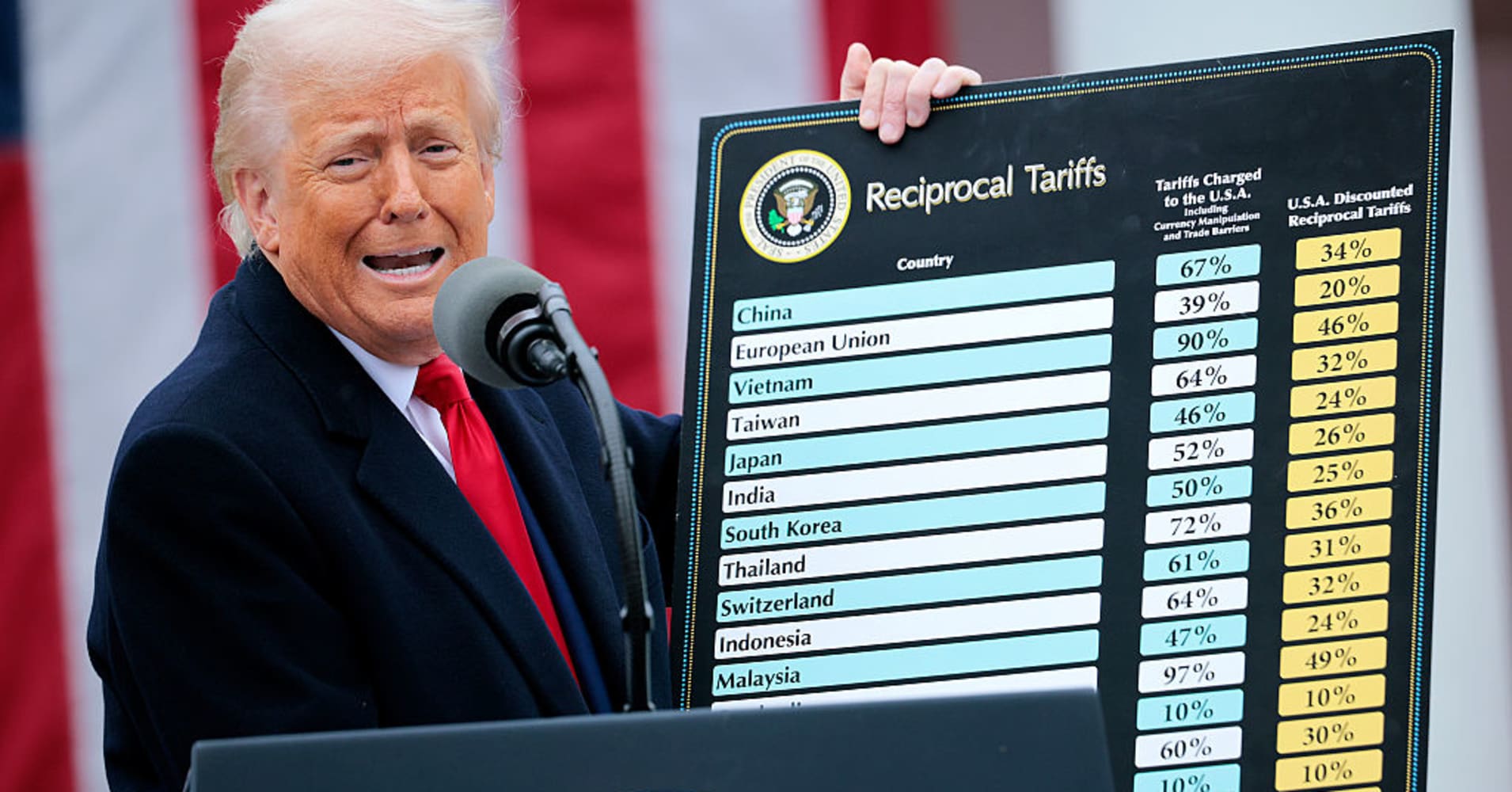Trump Tariffs Stalled: Federal Trade Court Weighs in on Challenge
- Judges at the U.S. Court of International Trade are set to hear arguments in a case challenging President Donald Trump's tariffs.
- The lawsuit filed by five domestic businesses argues that the law Trump invoked to impose his "reciprocal" tariffs does not actually give him the power he claims.
- The Department of Justice maintains that that law "clearly" authorizes the president to impose tariffs.

An obscure federal tribunal is scheduled to consider arguments on Tuesday. case challenging President Donald Trump tariffs, subjecting a crucial part of his economic plan to legal scrutiny for the first time.
A panel consisting of three judges from the U.S. Court of International Trade will review whether Trump overstepped his authority with the imposition of significant tariffs on goods imported into more than 180 countries and territories last month.
Should the judges align themselves with the plaintiffs, they might significantly restrict Trump’s capability to independently enforce import duties, which has been one of his favored ways of exercising presidential authority.
Recordings of the debates in the Manhattan courthouse will be livestreamed starting at 11 a.m. ET.
The lawsuit was filed in mid-April by five domestic businesses that say they rely on imported goods not reasonably available to them in the U.S.
Their lawsuit contends that the 1977 International Emergency Economic Powers Act was violated. Trump invoked in early April to impose his worldwide "reciprocal" tariffs — does not actually give the president the power to issue those sweeping duties.
The law gives the president a range of economic powers in a national emergency, including to regulate or ban imports, though it does not explicitly mention tariffs, according to the Congressional Research Service .
The "national emergency" Trump declared to justify his use of that law, known as IEEPA, is "a figment of his own imagination," the plaintiffs argue.
"Trade deficits, which have persisted for decades without causing economic harm, are not an emergency," their complaint says.
The plaintiffs want the court to block Trump's April 2 executive order imposing the tariffs. They also seek damages, including "the amount of any tariffs collected by Defendants pursuant to the challenged orders."
The Department of Justice argues that the IEEPA "plainly" gives the president the authority to levy tariffs.
"As per IEEPA, Congress legally granted the President the power to control imports via tariff imposition under specific conditions," state the Department of Justice’s legal representatives in their opposing memorandum.
The Liberty Justice Center, the libertarian nonprofit advocating for the plaintiffs, points out in the lawsuit that the U.S. Constitution grants Congress, rather than the president, the authority to impose and collect taxes.
Over time, Congress has passed legislation granting the president some tariff powers . But the lawsuit wants the court to declare that, "if Congress has granted the President unilateral authority to impose global tariffs of any amount at his whim, it is an unconstitutional delegation of legislative power."
A protectionist who focuses on making deals, Trump has frequently endorsed tariffs as an essential instrument for bargaining with other nations. collecting federal revenue .
However, he has temporarily rolled back numerous tariffs due to significantly fluctuating markets and growing worries expressed by both business owners and consumers.
One week following the announcement of the mutual tariffs, he did so. cut the rates reduced to a flat rate of 10% for 90 days for most countries apart from China.
On Monday, both the U.S. and China reached an agreement separately 90-day tariff pause while trade negotiations continue.
This is developing news. Please check back for updates.
Post a Comment for "Trump Tariffs Stalled: Federal Trade Court Weighs in on Challenge"
Post a Comment